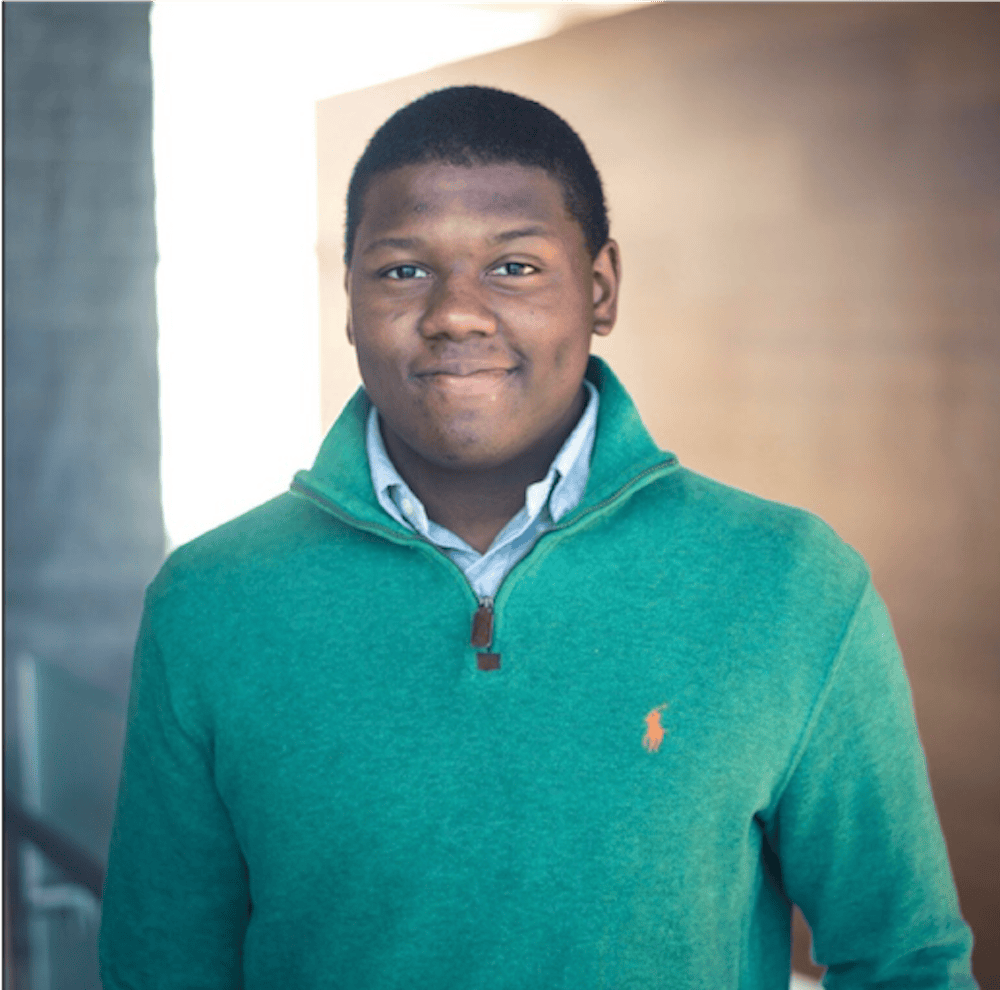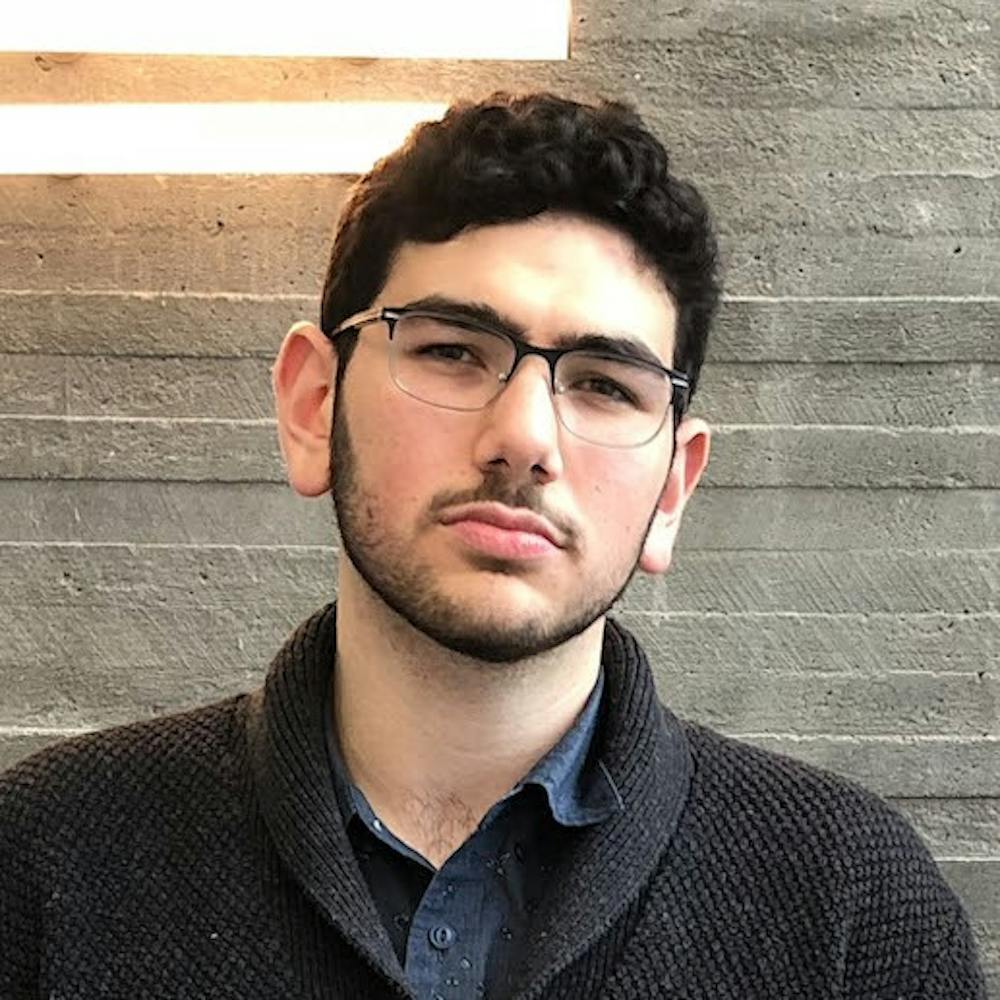Last October, the University hosted its first ever iteration of the Hult Prize competition, an international startup challenge with a focus on solving pressing social issues. A group of four students entered the competition an hour before the deadline, simply because the competition needed another team. The team ended up doing so well that this year they will fly to Kenya to implement their plan.
Noah Schochet ’21, one of the cofounders of the group, joined forces with Todd Baldwin ’20, a fellow entrepreneur who he met early in his first year at the University, Ayushi Sinha ’20, and Victoria Scott ’18. The team won the challenge at Princeton and then proceeded to place in the top three at a Boston regional event and the top six at the Hult Prize Ivy Competiton.
The team’s project centered on a solar powered water purifier made entirely from upcycled solar panels and lithium batteries. Upcycling refers to the process of reusing materials that would otherwise likely become waste.
“We get the solar panels for free from companies or locations where they were previously installed and are now being replaced by more efficient ones, but they still work. So they’re being thrown away but they still have a lot of value left in them,” Schochet explained.
A similar process occurs with lithium batteries, commonly used in electric vehicles like Teslas. When these vehicles leave the market, no one knows what to do with the batteries, which are too expensive to recycle.
This year, the WellPower team plans to make its dream a reality. The team added member Bethwel Kiplimo ’21, who hails from Kenya, where they plan on implementing their pilot project. According to Kiplimo, NGOs that come to Kenya often set up projects that no one actually uses.
“The current systems are broken,” Schochet said, referring to the previous social entrepreneurship efforts that have failed. “Fifty percent of them are broken after two years.”
Currently, the team is working on fund-raising before winter break, when they will head to Kokwa Island, the remote village in Kenya where they plan to implement their pilot program. Kokwa Island is cut off from the national grid, in the middle of a lake, with no clean water. If the program succeeds, the entire community could have access to clean water.

The innovative and environmentally conscious design of this unit is only part of WellPower’s pull; through its implementation, the team wants to redefine social entrepreneurship entirely.

“What we wanted was to make something the opposite of what we’d seen,” Schochet said. “Not a charity, but a company. Not something that was going to break, but something that was going to last. Not something that was going to lose money, but something that was going to make money.”
“We like to shy away from the social entrepreneurship title,” Baldwin added. “We believe that all companies should be in the best interests of providing for their customers.”
In addition to purifying water, the unit generates electricity; excess electricity from the purifier can then be sold to the local community, something akin to a micro-utility company. In the long term, the students hope that WellPower will not only serve to sustainably purify water, but will also revitalize the economy. People from Kokwa Island have already expressed interest in using the electricity produced by the water purifiers to power sewing machines, which would boost the production of textiles sold in the market, creating more industry and jobs.
“A lot of people ask us, why Kenya?” Sinha said. “I think this comes back to Princeton’s unofficial motto — of ‘in the service of humanity’ — and its own sort of emphasis on social entrepreneurship, but through a more global lens. I think we embody that.”
Kiplimo’s personal connection to Kenya certainly helps, and one of his main roles involves leading efforts to create partnerships and to reach out to people on the ground. The WellPower team has communicated with Kenya’s minister of water and irrigation in addition to local community members and entrepreneurs. When they arrive, the students will work with a nonprofit through a church in Kokwa, which will help them actually carry out the operation.

Through testing this pilot, the team hopes to diagnose any logistical problems in technology or finances, as well as assess the projects cultural compatibility. According to Sinha, the reason many social entrepreneurship efforts fail often has to do with a lack of compatibility with the communities they are trying to help.
“So many projects are not integrated into the way people naturally work,” she said. From the perspective of a Kenyan citizen, Kiplimo added, “we want to feel like it’s ours, that we can use it.”
Instead of altering how people get water, WellPower will ensure that people do get it, and the water is clean. After installing the unit, the team intends to provide members of the community with proper training so that they can maintain the system themselves. They want to dismantle people’s misconceptions of Africa as simply a place that “needs aid.”
“Africa is growing, it’s going to be the center of the next technological revolution,” Schochet said.
The WellPower team has taken inspiration from startups in Africa like Andela, which utilizes Africa’s large untapped labor pool to teach people valuable exportable skills such as computer programming, and Zipline, which specializes in medical products in Rwanda. Although Rwanda has a universal healthcare system that is considered one of the best in Africa, most U.S. investors prefer to invest in U.S. businesses, ignoring the potential for profit elsewhere, and the added possibility of humanitarian benefits.
Raising money for the project has proven difficult because of the aforementioned prejudices as well as a desire among investors to see whether WellPower is actually successful prior to investing. This creates a dilemma for entrepreneurs like the WellPower team, who need funding to test the project in the first place. However, they have succeeded in raising some funds through their success in competitions and through the University, as well as their GoFundMe.

In addition to ever-present obstacles relating to the project itself, all four students must tackle the rigorous University workload on top of extracurricular obligations, all while taking time for themselves, which often involves tough sacrifices.
Sinha, who majors in B.S.E. computer science, said that she preaches “doing what you love” more than she practices it. But her passion for WellPower has also forced her to set some of her other interests aside, such as working as an assistant residential college advisor (ARCA). She remains co-president of the Entrepreneurship Club (E-Club), but said she participates in club tennis as her “self-care.”
Baldwin, a chemical and biological engineering major, is also a member of E-Club, directs New York Tiger Trek, and said his self-care is club football. His biggest pieces of advice to University students are to set aside time for introspection and to take risks.
“College is the time to take risks,” Baldwin said. “I think we tend to view risk in a negative light, but we’ll never have the opportunity to take these risks again.”
In addition to his work in Kenya through WellPower, Kiplimo, a mechanical and aerospace engineering major, developed an education initiative in Kenya that offers books to kids, as well as a summer program teaching kids to read. According to Kiplimo, children from his village, Solai, did not have access to books growing up.
“I grew up reading the Bible,” Kiplimo said.
He began these projects out of his own desire. He realized early on that he was involved in too many clubs on campus. Now, he takes classes that he’s passionate about, avoids procrastinating, and works as a McGraw tutor alongside another campus job.
Schochet, who has been doing entrepreneurship his whole life, said he took six classes as a first-year and, like everyone else, was juggling too many clubs, because he felt that he “was supposed to.” This year, he arrived on campus with a new approach: “Do what makes you happy, nothing more.”
“I don’t have to do things for a résumé,” he said. “I’m only doing what I love. I’m extremely happy, and running on zero hours of sleep.”
Besides WellPower, he participates only in club sailing, and takes four classes despite being an engineer.

Photo courtesy of Victoria Scott.
All four students have had to make tough choices between WellPower, their classes, extracurriculars, and general livelihoods. In doing so, however, they evaluated their priorities, and realized what mattered to them the most.
Ultimately, their experience with WellPower has taught them that success requires a great deal of defiance, and that it is possible to think too much.
“Along every step of the way, everyone was trying to tell us why it wouldn’t work,” Schochet said. “Along every step of the way, we incorporate the advice, but we say ‘you’re wrong.’”
Through their efforts, the students hope to inspire future University entrepreneurs.
“As a team we’ve had to grow, we’ve had to go around the system when the system doesn’t work. Our hope is that we’ll pave the way for other people to follow; we want other entrepreneurs at Princeton to see that you can do it too,” Schochet said.
“There’s nothing more important than doing,” Sinha added. “Just get out there and build something.”








